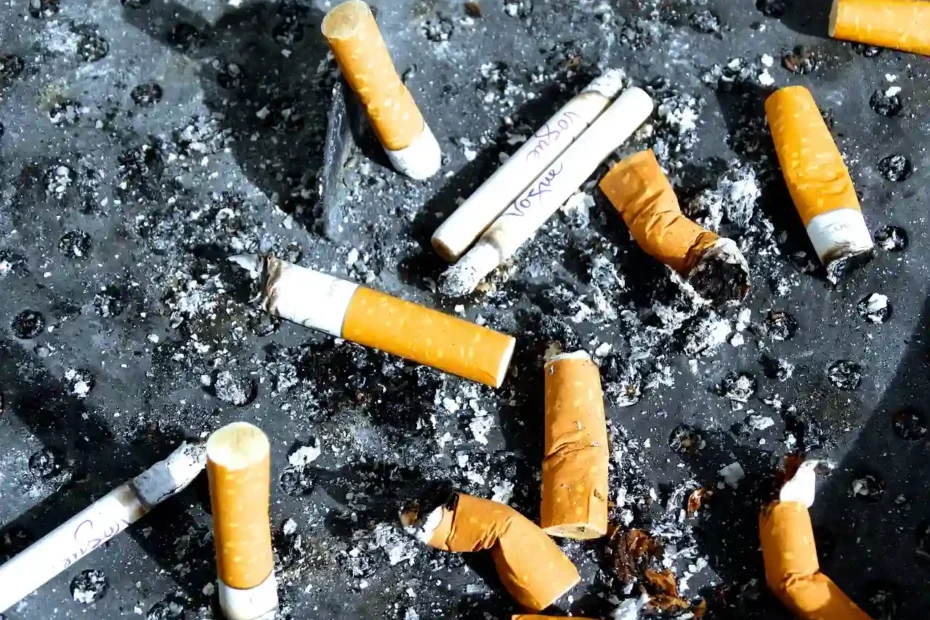Key Takeaways
- Cigarette butts are a major environmental pollutant affecting both land and sea across the globe.
- Discarded filters pose significant threats to wildlife, soil, and aquatic ecosystems.
- Public awareness and policy changes are crucial components for mitigating these negative impacts.
- There are actionable steps individuals and communities can adopt to address this pressing issue.
The Silent Menace of Cigarette Butts
Cigarette butts are often considered a minor type of litter, but they pose a significant threat to the environment. Cigarette butts are the most widely discarded items globally and include toxic substances such as nicotine, arsenic, and lead, which can seep into the soil and water, contaminating the environment. These harmful chemicals can be hazardous for wildlife, as animals might ingest them or become trapped in the butts, resulting in injury or death. The lengthy decomposition process, which can take several years, worsens the environmental impact of this type of litter.
Although the magnitude of the problem is immense, a significant number of people are still oblivious to the serious repercussions of cigarette butt littering. Raising public awareness and taking action are essential in tackling this overlooked threat. Governments, businesses, and individuals all have a part to play in mitigating this pollution. By disposing of cigarette butts correctly, utilizing designated disposal bins, and participating in clean-up initiatives, we can create a meaningful impact. Learn more about how you can contribute to protecting the environment and wildlife from the dangers of cigarette butt pollution.
Why Are Cigarette Butts So Dangerous?
Cigarette filters are laden with a cocktail of toxins, including nicotine, heavy metals, and various other harmful chemicals, presenting significant dangers to the environment. Once a butt is discarded, these unhealthy substances can leach into soil and water systems, initiating a cascade of ecological harm. This chemical leaching results in compromised water quality, diminished soil health, and expanded risks to flora and fauna, radically altering ecosystems where human agriculture and freshwater resources are vital. The far-reaching consequences of cigarette litter highlight a pressing need for corrective measures reinforcing the urgent need for awareness and policy reform. As these chemicals penetrate the environment, they increase risks to humans, necessitating immediate interventions for ecosystem preservation.
Impacts on Marine Life
The perilous journey of cigarette butts often concludes in oceans, where these pollutants evolve into lethal threats to marine life. Numerous marine animals, ranging from diminutive fish to birds, erroneously ingest these toxins, leading to choking, poisoning, or fatal internal injuries—these misguided intakes more severely damage further compromised marine ecosystems, already vulnerable due to numerous pollutants. The repercussions ripple up the food chain, affecting biodiversity and human communities dependent on ocean resources. The grim reality accentuates the intricate connection between cigarette butt pollution and the extensive harm it causes to environmental and human health alike.
Contributions to Land Pollution
On land, the impacts of cigarette butt littering are equally consequential and pervasive. These refuse items mark the appearance of urban landscapes and introduce harmful toxins into terrestrial ecosystems. Small animals and birds are particularly susceptible, often mistaking these hazardous remains for seeds or nourishment, leading to injury, health complications, or mortality. Not only does this threaten biodiversity, but it also exacerbates other urban issues like clogged drainage systems, which can heighten flooding risks and create fire hazards from improperly disposed butts. These problems underscore the multi-dimensional nature of cigarette butt littering, where aesthetic, ecological, and practical challenges coexist, complicating environmental management and urban maintenance.
The Role of Public Awareness and Policy
Catalyzing a shift in public involvement and awareness is pivotal to mitigating the detrimental impacts of cigarette butt pollution. By harnessing information and community engagement, local populations can lead initiatives offering responsible disposal methods, helping significantly reduce tobacco waste. Awareness initiatives have shown to be successful in encouraging changes in behavior and reducing littering rates, highlighting the impact of educated communities. Nevertheless, these efforts should be complemented by robust policy frameworks and a shift towards biodegradable filters. Regulations enforcing stricter litter penalties and incentivizing recycling initiatives can drive systemic changes, fostering environments that uphold the integrity of biodiversity.
Taking Personal Responsibility
Although policy and public initiatives play essential roles, personal responsibility is a foundational aspect of environmental conservation. Smokers can contribute significantly by adopting straightforward yet impactful measures, such as utilizing portable ashtrays and ensuring cigarette butts end up in designated receptacles. When adopted collectively, even minimal changes can accumulate significant environmental benefits. Encouraging this sense of responsibility within our communities can spark a cultural shift towards ecological stewardship and inspire a greater accountability level, which enhances community-driven efforts in combating cigarette littering.
Community Initiatives and Global Efforts
On a larger global scale, community initiatives backed by international organizations create a powerful, united front against the misuse of cigarette litter. These efforts emphasize cooperation and teamwork in overcoming significant environmental hurdles. Clean-up campaigns, educational seminars, and alliances with tobacco industry stakeholders signify strategies for achieving tangible, positive outcomes in curbing cigarette waste. By supporting and engaging with such community–focused movements, individuals can amplify their environmental impact locally and globally, working towards creating a more sustainable environment. This momentum underlines the crucial role of community resilience and innovation in addressing cigarette litter, turning every discarded butt from a harbinger of trouble into a spark for positive environmental change.
The fight against cigarette litter is not a solitary endeavor but a shared responsibility. It necessitates worldwide collaboration among individuals, communities, and global networks committed to preserving our planet’s future and ecological well-being for future generations. The collective efforts of the many can foster substantial positive transformations, successfully reshaping our environments to be cleaner, healthier, and more sustainable.
